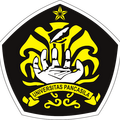Situs beranibersuara.id sebagai Bentuk Psikoedukasi Pencegahan dan Penanganan Kekerasan Seksual Berbasis Sistem Informasi
Abstract views: 108 | PDF (Bahasa Indonesia) downloads: 76
Abstract
Various efforts have been made to prevent and address sexual harassment in higher education environments, yet it still occurs. One approach is through psychoeducation. Therefore, an information system was designed as a form of psychoeducation that can be accessed anytime and anywhere to prevent and address sexual harassment, called beranibersuara.id. This information system includes several features to help survivors and prevent sexual harassment. These features are the psychoeducational module regarding sexual harassment, a “Call Us” feature that enbles survivors to get help quickly from the task force or police, and a counselor feature for psychological assistance. There is also a health reference feature that provides a list of hospitals, including their addresses and telephone numbers, for survivors to check their health after experiencing sexual harassment. This information system also provides mindfulness psychoeducation and training videos to reduce negative emotions experienced by survivors. Based on the results of the usability test of the berabibersuara.id site (18-20 January, 2024) involving 55 participants, 58,2% stated that features on the site were usable. However, maintenance and development of this site are needed as media for psychoeducation on the prevention and handling of sexual harassment.
References
Bassil, Y. (2012). A simulation model for the waterfall software development life cycle. International Journal of Engineering & Technology, 2(5), 1-7.
Kementerian Pemberdayaan Perempuan dan Perlindungan Anak. (2024). Peta sebaran jumlah kasus kekerasan menurut provinsi tahun 2019-2024. https://kekerasan.kemenpppa.go.id/ringkasan
Kementerian Pendidikan, Kebudayaan, Riset, dan Teknologi. (2024a). Apa itu kekerasan seksual?. https://merdekadarikekerasan.kemdikbud.go.id/ppks/kekerasan-seksual/
Kementerian Pendidikan, Kebudayaan, Riset dan Teknologi. (2024b). Merdeka dari kekerasan. https://merdekadarikekerasan.kemdikbud.go.id/
Margaretha. (2015, 21 Juni). Dibalik istilah: Korban atau orang yang selamat (victims or survivor)?. Psikologiforensik.com. https://psikologiforensik.com/2015/06/21/dibalik-istilah-korban-atau-orang-yang-selamat-victim-or-survivor/
Piara, M., Rhesa, M., Hamid, M. W., Sadzali, M., & Hasanuddin, M. I. (2022). Psikoedukasi mengenai quarter life crisis. Pinisi Journal of Art, Humanities, and Social Studies, 2(6), 291-295.
Pile, J. F. (1995). Color in interior design. Mc Graw-Hill.
Trihastuti, A., & Nuqul, F. L. (2020). Menelaah pengambilan keputusan korban pelecehan seksual dalam melaporkan kasus pelecehan seksual. Personifikasi: Jurnal Ilmu Psikologi, 11(1),1–15. https://doi.org/10.21107/personifikasi.v11i1.7299
Universitas Indonesia. (2024). Penyelenggaraan program pencegahan dan penanganan kekerasan seksual Universitas Indonesia. https://www.ui.ac.id/program-pencegahan-dan-penanganan-kekerasan-seksual-ppks/.
Universitas Kristen Satya Wacana. (2024). Pencegahan dan penanganan kekerasan seksual. https://www.uksw.edu/pencegahan-dan-penanganan-kekerasan-seksual/
Universitas Pendidikan Ganesha. (2023). Satuan tugas pencegahan dan penanganan kekerasan seksual. https://satgasppks.undiksha.ac.id
Utami, Z. N. P., Rifdah, A. K., Cecep., & Sahadi, H. (2018). Mengatsi dan mencegah tindak kekerasan seksual pada perempuan dengan pelatihan asertif. Jurnal Penelitian & PPM, 5(1), 1-8.
Williams, M. K. (2017). John Dewey in the 21st century. Journal of Inquiry and Action in Education, 9(1), 1-12.
Wiyati, R. (2010). Pengaruh psikoedukasi keluarga terhadap kemampuan keluarga dalam merawat klien isolasi sosial. Jurnal Keperawatan Soedirman, 5(2), 85–94.
World Health Organization. (2020). Global Status Report on Preventing Violence Against Children 2020.









